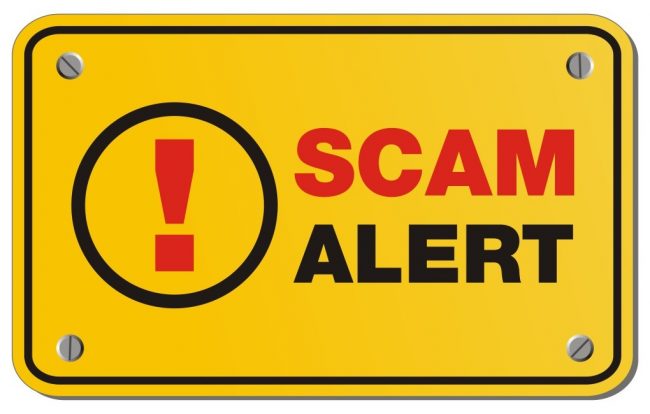5 Signs of Phishing Scams in Emails
What are 5 signs of phishing scams? Malware creators have smartened up with time and they are coming up with newer and unprecedented ways to break the defense of security software and computer networks.
It is not only the external storage devices or optical media that can contain malware, the emails in your inbox can also be the culprits! Phishing attacks have grown in recent years worldwide, affecting both regular and corporate web users.
While security software firms continuously equip their software to detect phishing emails and messages, the malware creators succeed in finding some loophole and target vulnerable users. If the users get duped and reveal personal information, the senders of such emails make wrong use of that and the consequences can be serious.

5 Signs of Phishing Scams in Emails
Signs to Identify Potential Phishing Scams
Given the grim scenario, you just cannot rely on the efficacy of the security software installed in your laptop or office network to evade phishing attacks. Some of the fraud emails can manage to skip past security barrier of antivirus software. It is also necessary that you learn about top signs of fraudulent phishing emails. Below listed are such signs of possible phishing emails:
Mismatched URLs
You may find emails sent from an unknown person and the email contains a mismatched URL. This is something you should take as dubious, to begin with. Genuine emails sent from companies or any entity should not have mismatched URL at all. Ensure that you never click on the URLs in such emails.
Poor grammar and spelling errors
This is another telltale sign of phishing scams. Any credible corporate organization or government entity will not send emails written in poor grammar and riddled with spelling errors. You should also be wary of emails with poor formatting issues. Improper use of capital letters and punctuation errors are also something you should not take lightly in this context.
An offer sounding too unrealistic
A lot of phishing emails contain trap of prizes and wins that are too good to be true! This is one way of luring relatively vulnerable users. If you find such emails containing notifications of a lottery win or a lucky draw fetching you millions, they are more likely to be fake. You may as well ask yourself why on earth some unknown person or entity will want to bestow you with millions of pounds or euros suddenly!
Asking for personal data
If an email sent from an unknown source contains statements asking for your bank account details and related information, you should smell the rat. Do not give away your information to those senders and send the email to spam folder ASAP. Even if the sender claims to be from your bank, do not comply with the request. In reality, banks do not send emails to the customers asking for account details.
Attachments looking awry
If an email coming from an unknown or suspicious source contains an attachment, it would be better not to open it at first. Some hackers send phishing emails that contain proper content, but the attachment may contain malware. Clicking the attachment could prove to be risky. You should be more cautious if that attachment has an extension like .EXE, MSSI, or BAT.
Additional Factors to Consider
As already mentioned, phishing mail creators and hackers resort to numerous measures to influence target users to extract information from them.
Some users have received emails claiming to be from high profile government and law enforcement agencies, which have turned out to be fraudulent. Similarly, a lot of users have received fake emails cautioning them about a possible security breach in their accounts. Democrats may know all about that!
The emails may also be filled with directions to send money to an account for resolving the issues. As a user, you should not succumb to these manipulative tactics.
Make sure you are connected to a VPN server. This will allow you to hide the IP address you are using while sending out emails. As a result, you are adding an extra layer of security and privacy. The following are the best VPN providers you can use in order to avoid phishing scams.

- Best for streaming and privacy
- High speed servers in 160 VPN locations
- Works for Netflix, BBC iPlayer, Amazon Prime Video, and Hulu
- 24/7/ live chat support
- 3 extra months free on annual plan

- UltraHD streaming
- Free Smart DNS proxy
- Unblocks all major streaming services
- Limited Time 72% Discount

- Unlimited VPN connections
- Over 1000 servers
- Ad-blocking feature available
- User-friendly application
- Exclusive Smart VPN feature
- Standalone Smart DNS subscription available
- Extra security features
- Extensions for Firefox and Chrome
- Split-tunneling available
Report Phishing Scams
If you suspect that somebody is trying to scam you, you can lodge a scam report.
- In USA, fill out the FTC Complaint Assistant Form.
- If you live in the UK, you can contact the police about potential frauds.
- In Australia, you can report phishing scams to the Australian Scam Watch.
- In Canada, get in touch with the Canadian Anti-Fraud Centre.
5 Signs of Phishing Scams – Summing it up
It is not too hard to detect a phishing scam, if you know the basics and keep your eyes open! Issues like too lucrative offers, poor grammar in email content, cautionary messages from high profile agencies without reasons are all telltale signs of phishing emails. You should also be careful about opening attachments sent with such emails and keep updating your antivirus software regularly.









